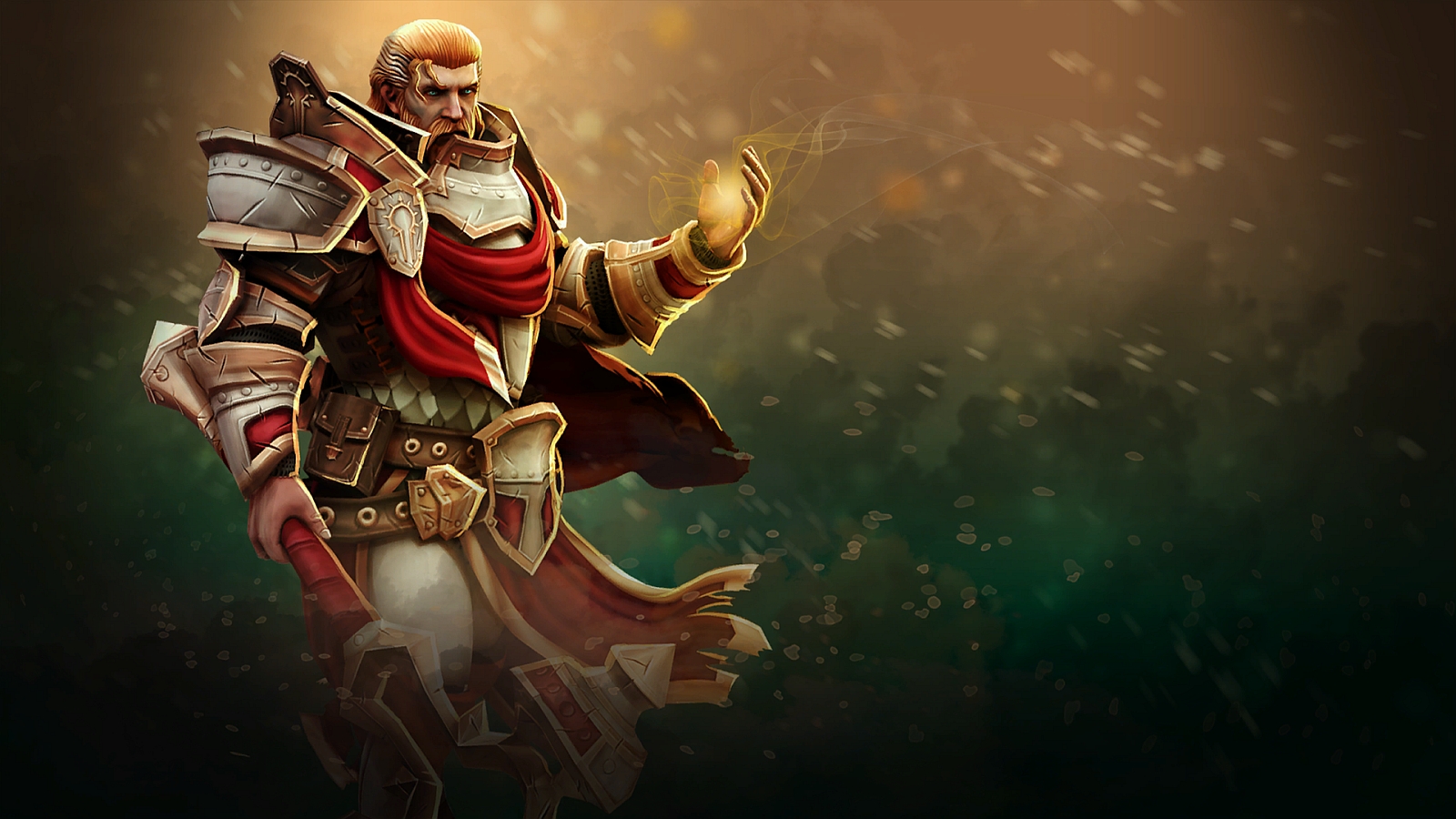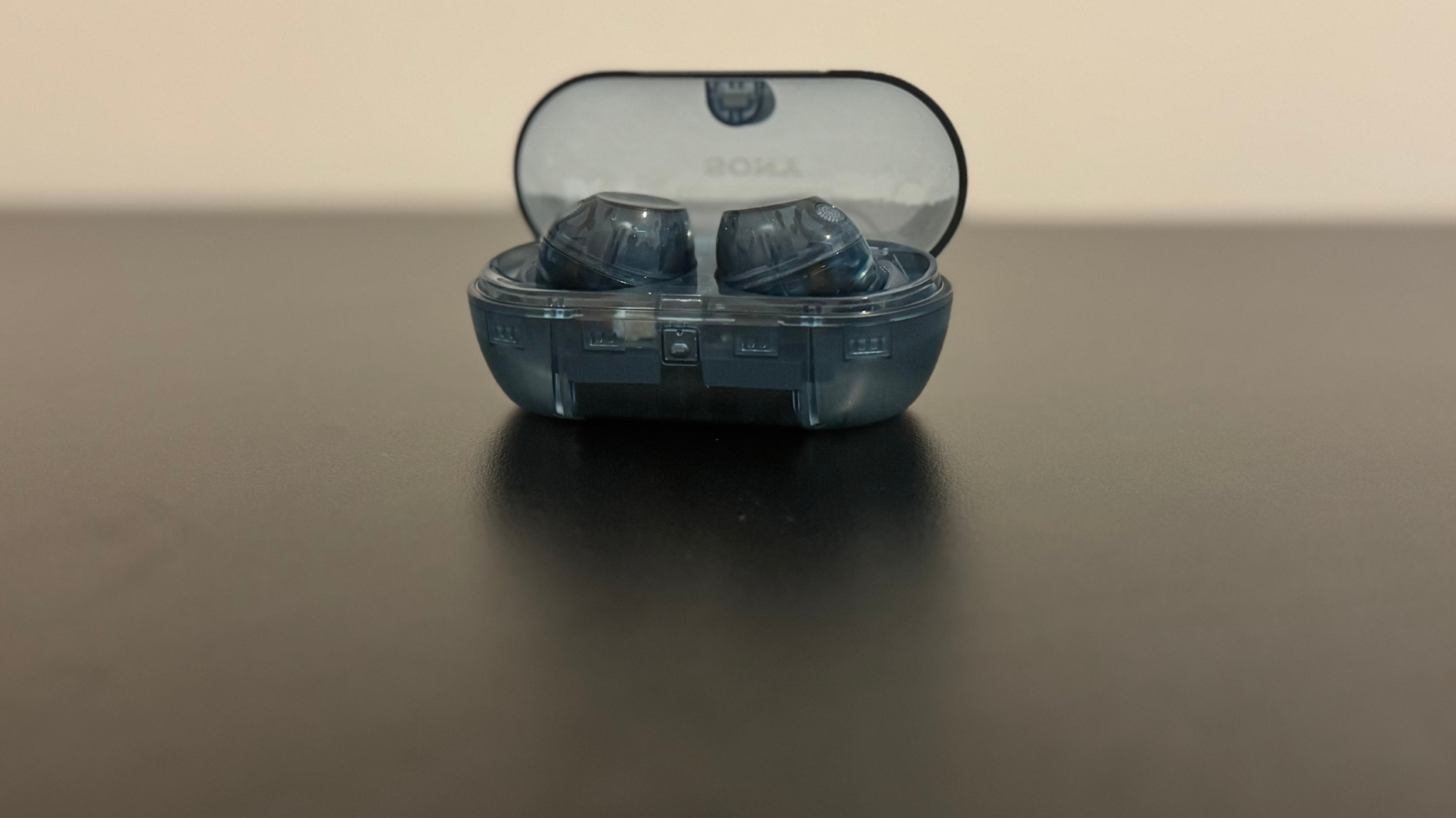Unsung heroes of Dota 2: Omniknight

Given that Dota 2's entire character roster is available to everybody, all of the time, learning new heroes presents a daunting challenge to new players. Talking to people who are just starting out on the long road to being halfway-competent-maybe at Dota, a question I've heard a lot is 'how do I choose who to play next?'
In this series, then, I'm going to shine a light on heroes that new players may miss. In particular, I'm looking for heroes that have a higher-than-average win-rate (calcuated using DotaBuff) but who wouldn't otherwise be considered a major part of the current metagame. Champions of pub Dota, in other words, heroes you might not see very often in the hands of top players but who you might get a kick out of as you take your first steps into ranked.
We’re going to alternate this series with our Dota 2 Q&A, ‘Game Is Hard’, on a bi-weekly basis. This gives us more time to set up interviews and gives time for new hero trends to emerge.
Let’s get to business.
What does Omniknight do?
Omniknight is a strength melee hero most commonly played as a support. His abilities emphasise protection: even his most powerful damage spell is deployed defensively.
Why Omniknight?
Dota 2 tends to shy from traditional fantasy stereotypes—or at least they’re rarely presented without a twist of some kind. Omniknight looks like a paladin, sounds like a paladin and—for the most part—plays like a paladin. The twist here is a relatively subtle one: despite the crusader knight imagery, angelic guardians and god-rays, Omniknight actually worships a cave-dwelling Elder Thing that may or may not have created the world by chance while trying to hide from space monsters. As you do.
Keep up to date with the most important stories and the best deals, as picked by the PC Gamer team.
He’s been sat in the middle of the popularity charts for a long time, now, despite a consistently high win-rate—greater than 60%. Let’s break down some of the reasons why this might be.
He’s almost always played as a hard support
This contributes to both his winrate and his unpopularity. As a wise man once said: “nobody wants to play support, but everybody wants to win.” As a defense-oriented character, Omniknight doesn’t offer the multi-kill potential that most players chase. On the other hand, picking him communicates a rare desire to cooperate with your team—and it’s this, most of the time, that wins games.
He upsets aggressive players
Omniknight is powerful in pub matches because he punishes players that don’t think twice before committing to an attack. This accounts for a lot of players. When somebody is diving in pursuit of an easy kill, a well-timed heal, burst of magic immunity, or team-wide protection from regular attacks can all turn fights on their head. In a game that is often about snowballing momentum, Omniknight acts as a human stop sign: and he doesn't need much by way of items or levels to do it. A well-timed Guardian Angel can keep a losing team in the game for a long time.
He acts as a safety net for allies
The inverse is also true: when your own allies are too aggressive, Omniknight is good at making sure that they don’t pay too much for it. Repel acts as a free Black King Bar, granting on-the-fly magic immunity to carries who are dead-set against building defensive items for themselves. This doesn’t mean they shouldn’t build defensively, of course, but it’s hardly unusual for pub players to go for more damage over more survivability: Omniknight patches up that gap, whether they like it or not. The key here is that Omniknight himself has to play carefully, even if his allies aren't: make sure you're where you need to be to deliver that clutch Purification, but don't die for it.
He is everybody’s dad
To put all of this another way: Omniknight is great in pubs because he acts as a moderating influence on what tends to be an immoderate form of Dota. Your job is to stand on the sidelines, dampening enemy aggression and preventing your teammates from hurting themselves too badly. If you can keep a cool head, he’s relatively easy to play: an effective Omniknight is one who reliably gets the most out of a single Purification, a single Repel, a single Guardian Angel. That means walking the tightrope between waiting for the right moment and becoming too hesitant, which is something you’ll only improve with experience. But you’d be surprised at how many games can be won by a single player acting responsibly, defensively, and putting their team first: Omniknight’s 60% winrate isn’t an accident. He isn't flashy, but if you enjoy winning games from a position of control on the sidelines, you'll get a kick out of him.
Items to consider
As a support, you’re going to spend a lot of time buying Observer and Sentry Wards as well as the Courier and its flying upgrade. Mana and mobility are both important to Omniknight, so Arcane Boots are a priority. His abilities mesh well with a Soul Ring, and Force Staff lets him reposition within a fight and escape more reliably (something he otherwise lacks.) He’s a natural Mekansm carrier, which transitions naturally into Guardian Greaves, and his Aghanim’s Scepter upgrade can be game-winning. You might also consider picking up helpful aura items on him, like Vladimir’s Offering and Drums of Endurance. If things are going extremely well, consider a Refresher Orb, Shiva’s Guard, or Scythe of Vyse. Essentially: this is a team-focused hero. Build with your team in mind.

PC Gamer Pro is dedicated to esports and competitive gaming. Check back every day for exciting, fun and informative articles about League of Legends, Dota 2, Hearthstone, CS:GO and more. GL HF!
Joining in 2011, Chris made his start with PC Gamer turning beautiful trees into magazines, first as a writer and later as deputy editor. Once PCG's reluctant MMO champion , his discovery of Dota 2 in 2012 led him to much darker, stranger places. In 2015, Chris became the editor of PC Gamer Pro, overseeing our online coverage of competitive gaming and esports. He left in 2017, and can be now found making games and recording the Crate & Crowbar podcast.


